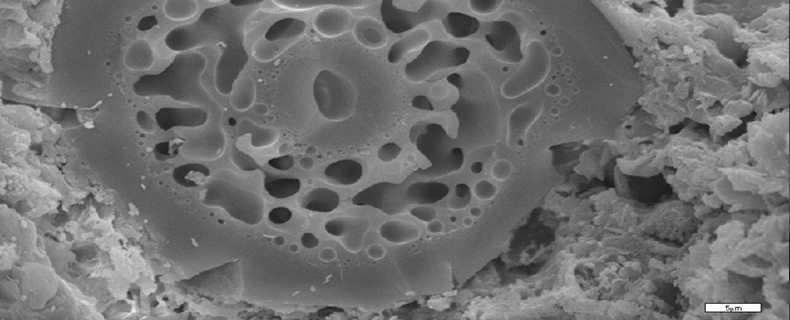| School |
Natural Sciences |
Academic Unit
|
Geology Department |
Level of Studies
|
Undergraduate |
Course Code
|
GEO_805 |
| Εξάμηνο σπουδών |
7ο |
Course Title
|
Geothermal Energy |
Independent Teaching Activities
|
Lectures, laboratory work and tutorials |
Weekly Teaching Hours
|
2 (lect.) + 1 (lab.) + 1 (tut.) |
| Credits |
5 |
Course Type
|
Field of Science and Skills Development |
Prerequisite Courses
|
Typically, there are not prerequisite courses. Essentially, the students should possess knowledge provided through the theoretical courses of Mineralogy, Petrography, Geochemistry, Hydrochemistry, Tectonics and Geodynamics. |
Language of Instruction & Examinations
|
Greek |
Is the Course offered to Erasmus Students
|
Yes, in English |
| Course Web-Page (URL) |
https://eclass.upatras.gr/courses/GEO377/ |
Learning Outcomes
|
By the end of this course the student will
- Have a spherical view of the geothermal activity and the factors controlling the geothermal field formation.
- Be acquainted with the methods and techniques applied in the exploration and the exploitation of geothermal fields.
- Be aware of the major world and domestic geothermal fields.
- Estimate the potential environmental impacts from the exploitation of geothermal energy.
Moreover, the student will have further developed the following skills/competences
- Ability to demonstrate knowledge and understanding of essential facts, concepts, principles and theories relative to geothermal energy.
- Ability to apply such knowledge and understanding to practical issues concerning the exploration and exploitation of geothermal fields.
- Ability to refer to relative literature to enhance the already possessed knowledge.
- Study skills needed for continuing professional development.
- Ability to interact with others on inter or multidisciplinary problems.
|
General Competences
|
- Generally, by the end of this course the student will have developed the following general abilities:
- Searching, analysis and synthesis of facts and information, as well as using the necessary technologies
- Adaptation to new situations
- Decision making
- Autonomous (Independent) work
- Group work
- Exercise of criticism and self-criticism
- Promotion of free, creative and inductive thinking
- Respect to natural environment
- Work design and management
|
| Syllabus |
- Earth’s Heat: Origin, heat flow, geothermal gradient.
- Regions with geothermal activity. The geothermal Field: Surface manifestations.
- Geothermal fluids. Geothermometers.
- Geothermal exploration and exploitation.
- Geographical distribution of major geothermal fields worldwide and in Greece.
- Geothermal Energy and environment.
|
| Delivery |
Lectures, seminars and laboratory work face to face. |
Use of Information & Communication Technology
|
Use of Information and Communication Technologies (e.g. power point presentations) in teaching. The lectures content of the course for each chapter are uploaded on the e-class webpage of the University, in the form of a series of pdf files; the students can freely download them using a password. |
Teaching Methods
|
| Activity |
Semester workload |
| Lectures (2 conduct hours per week x 13 weeks) |
2 X 13 = 26 |
| Laboratory work (1 conduct hour per week x 13 weeks) |
1 X 13 = 13 |
| Preparation of presentation |
35 |
| Private study of the student and preparation of home-works |
51 |
| Total number of hours for the Course |
125 |
|
Student Performance Evaluation
|
- Exercises : During the semester the students have to do homework; the exercises have to be given to the teaching staff on time. This is the basic prerequisite for allowing participation in the final examination.
- Presentation : Shortly before the semester end the students have to present in the class certain subjects of the course (certain geothermal fields, geological-technical issues to face in geothermal exploration or exploitation). The mark of the presentation constitutes 30% of the final mark.
- Written examination : After the semester end, including questions of short and extended replies, exercise, diagramme interpretation etc. The mark of the written examination constitutes 70% of the final mark.
Minimum passing grade: 5. |
Attached Bibliography
|
Suggested bibliography:
- Christanis K., Geothermics. University of Patras (textbook in Greek).
- Fytikas M. & Andritsos N., 2004. Geothermics. Tziolas Publ., Thessaloniki (in Greek).
- Huenges Ε., 2010. Geothermal Energy Systems. Exploration, Development, and Utilization. Wiley-VCH Verlag GmbH & Co. KGaA, Weinheim.
Related academic journals:
- Geothermics (https://www.journals.elsevier.com/geothermics)
|






























